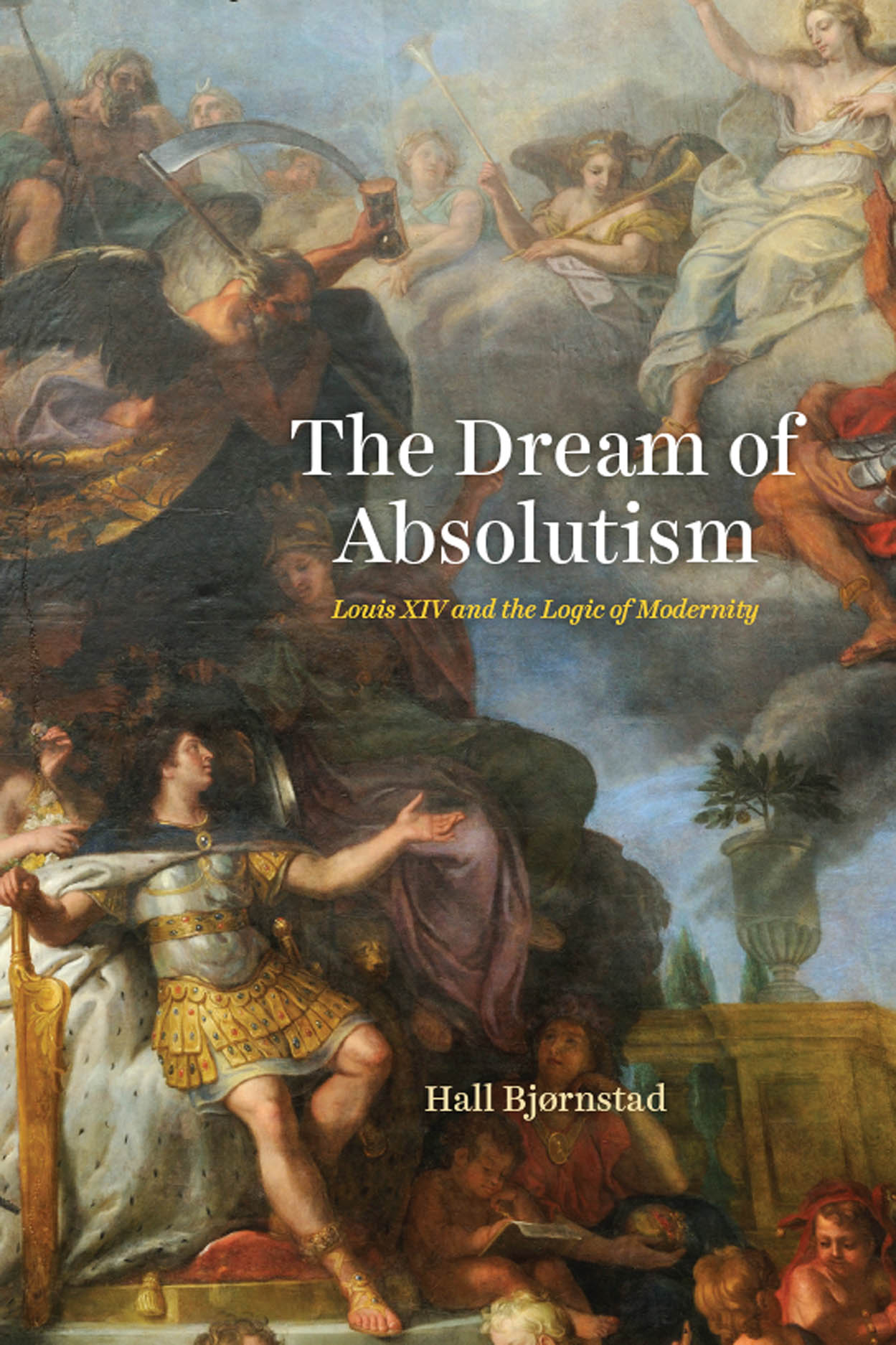“This is not a book about Louis XIV.” So begins Associate Professor Hall Bjørnstad’s recent monograph The Dream of Absolutism: Louis XIV and the Logic of Modernity (University of Chicago Press, 2021). In discussing the opening sentence, rather provocative given the title of the work, Bjørnstad makes clear that Louis XIV is but the exemplar of an absolutist mind-set embraced not only by the Sun King and his courtiers, but by the French people as a whole. As absolute power, like most things absolute, is impossible, he uses the term “dream of absolutism,” which he explores through an analysis of Louis’ Memoires written for his son, the paintings of Charles Le Brun at Versailles, and two seemingly absurd yet, he argues, genuine volumes written in praise of the King during his lifetime.
Bjørnstad’s scholarship on this topic harkens back to at least 2009, when his job talk for the position of Assistant Professor in the Department examined Le Brun’s famous allegorical paintings on the ceiling of the Hall of Mirrors of Versailles, and the Sun King’s reaction to them. His research since then has revealed that the idea of the king’s absolute authority was not just propaganda. “It’s not just manipulation,” says Bjørnstad. “The King is also convinced of this dream of absolutism.” As are the people of France, whose Catholic religious beliefs uphold the divine right of the monarch. The King is the lieu tenant de Dieu, the person on earth who acts in place of God.
Therefore, even the obsequious writings that hail the incomparable greatness of Louis XIV and are analyzed in the third chapter of Bjørnstad’s book are the result of the “dream of absolutism” that the authors share with the rest of French society. Overall, Bjørnstad’s book is more about absolutist culture than about Louis XIV himself, although he is certainly a prime example.
Bjørnstad concludes his work with a chapter entitled “Seven Theses on the Dream of Absolutism,” a concise summary of his findings. The last thesis states that the dream can still be dreamt today, emphasizing that modern incarnations of this dream are not harkening back to the past, but are enabled through collective emotions and dynamic leaders of the present. Reviewer Julia Reinhard Lupton writes, “Practicing a form of reading backlit by the premodern virtues of dignity and decorum, Bjørnstad urges us to recognize our own captivation by a fantasy of power that remains with us today.”
Bjørnstad’s research for this monograph was supported by a National Endowment for the Humanities fellowship and an internal College Arts & Humanities Fellowship. The University of Chicago Press organized an online event on October 13, 2021, where professors Ellen McClure (University of Illinois Chicago) and Larry F. Norman (University of Chicago) discussed the book with Bjørnstad. For a full list of recent faculty book publications, please visit our publications page.

 The College of Arts
The College of Arts